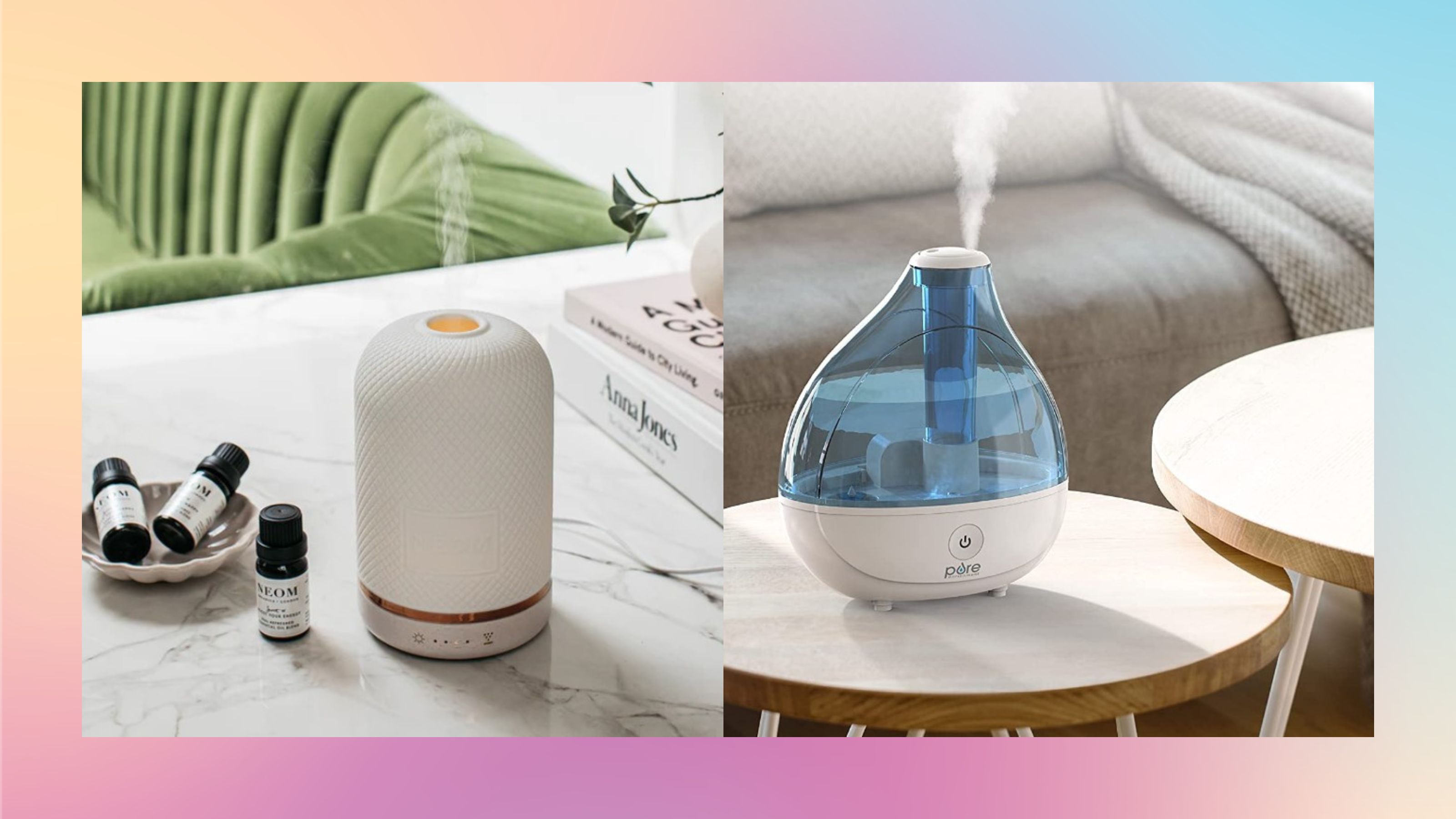
Listen up gals, the time has come to stop using the terms “diffuser” and “humidifier“ interchangeably. "Why?" you ask. Well, because they’re (apparently) two totally different devices. Yep, really.
JSYK, while they might look similar and they might even appear to do the same thing but they actually do work differently and have rather unique purposes.
I know, I know they’re both electronic devices that mist water into the air, but that’s where the similarities end. Because the mist that they each emit has a totally different purpose. I mean, who knew, right?
Wondering what the key differences are between the two and which is best for what? Our guide has got you covered. For the full lowdown, read on.
What’s the difference between a diffuser and a humidifier — and how do they work?
Right, so we’ve determined that they’re different, but how exactly?
A humidifier (like this Pure Enrichment humidifier that's available at Amazon) is designed to add moisture to the air and can be used to help relieve issues like dry skin, coughs, and sore or scratchy throats caused by dry air.
Whereas, a diffuser (like Neom ultrasonic diffuser from Amazon) mists essential oils into the air and can be used for aromatherapy or to scent your home.
One of the main differences between diffusers and humidifiers is the size of their water tanks. So, while most diffusers can hold one cup of water (often less) most humidifiers can hold between ½ and one gallon of water.
A diffuser doesn’t require the same amount of water as a humidifier as its purpose isn’t to add moisture to the air (that’s what a humidifier does). Instead it simply disperses scent into the air.
And, while you can safely add essential oils to diffusers, it’s not normally a good idea to add them to humidifiers. In fact, adding essential oils to a humidifier will not only (in most cases) void the warranty, but it may also damage the device as, over time, the essential oils can deteriorate the tank, filter and other internal components.
What are the pros and cons of a diffuser?
Pros:
Helps to freshen the air in your home
Easy to change the scent being diffused
The scent can deter pests — primarily mosquitos, fruit flies and other insects
Aromatherapy can offer health benefits
Cons:
Most tanks only hold a small amount of water
Some people can be allergic to essential oils
Essential oils can be pricey
What are the pros and cons of a humidifier?
What are the pros and cons of a diffuser?
Pros:
Lots of health benefits
Increased longevity of household furniture (it sounds strange but with the ideal humidity, every fixture in your home, from your couch to your hardwood floors, will last for longer)
Large tank (doesn’t need refilling as often)
Cons:
Lots of maintenance required (keeping humidifiers clean is vital to ensure that they continue to work efficiently).
If the settings aren’t right, humidifiers can cause condensation which can lead to the growth of bacteria, mold and dust mites (depending on the type of humidifier)
Some humidifiers may be noisy
Diffuser vs humidifier — which is best for what?
So, we’ve discovered that both humidifiers and diffusers come with their own pros and cons, but which is best for what?
If you’re looking for a system that will help to scent your home or aid relaxation, then an ultrasonic diffuser (that can be used in combination with your favorite essential oils is a great buy.
Whereas, if you’re looking for a device that pumps out a lot of moisture (without the scent of essential oils) then a humidifier is probably the best bet.
I personally have both devices at home and use both interchangeably, as well as at the same time, depending on what’s needed.
If I’m feeling under the weather, with a cold or my skin feels dry, or I simply feel that the air feels a little dry, then I often opt to have my humidifier pumping out moisture into the air.
Whereas, if I want to add a nice scent to my home or do a little aromatherapy, I tend to opt to turn on one (of my many) essential oil diffusers.







